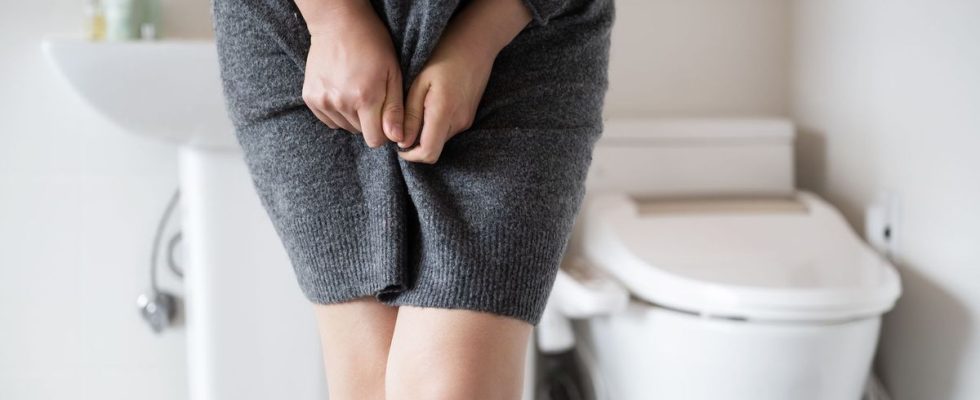Published on
Updated
Reading 2 min.
Taboo in our society, urinary leakage nevertheless affects millions of women (and men) in France who do not dare to talk to their doctor about it. A mistake for Professor François Haab, urologist, because solutions exist to overcome it.
Is incontinence a bad word? In our society, it is common to attribute to it signs of old age, of a loss of control, of something that escapes us (literally) and which is perceived as shameful. An image which, however, does not really match reality, according to professionals.
12% of the population suffers from urinary leakage (and not just the elderly)
According to the Parisianincontinence would in fact affect 12% of the French population, or more than one person in 10, with of course an increasing rate with age (40% of women aged 60 and over) but would also affect 10% of women under 40, and 20% of women aged 40 to 60%.
Leaks with multiple causes (obstetric history, pregnancy, menopause, post-surgery, etc.) which can impact all ages. However, the subject is often kept to oneself.
Incontinence is not a female physiological problem
For Professor François Haab, a urologist in Paris, contacted by Doctissimo, the subject tends to be swept under the carpet, even though it still concerns 3 million women in France, which is little known. “We don’t understand the word incontinence; it is by no means the prerogative of patients in nursing homes. Most of the women who suffer from it are dynamic women, who are embarrassed to do sports, play with their children, dance… However, they choose not to talk about it.
The fault, according to him, is the resilience expected of women (who must be discreet) and the message shared by… protection against leaks, sold commercially.
“These diapers suggest that incontinence is something physiological, in the same way as periods for example. And that discreet protection (of which it even adopts the name) is enough not to talk about it. But in itself, it “It’s false advertising. There are solutions, incontinence does not have to be suffered and experienced in silence. It can be treated.”
Moreover, the expert notes that when the leak concerns men (which can be the case after surgery) they are determined to resolve the problem. “Women consult when they have experienced too much shame, an evening with friends that ends with a stain. The last straw… in short.
Medical solutions exist… when we consult
If you too suffer from urinary leakage, know that there are real solutions to put an end to this problem. “They will depend on the mechanism of incontinence, a medical diagnosis must therefore be established on the origin and cause of the leak. Is it at the level of the bladder, the sphincter, the perineum? explains our expert. From there, several treatments can be considered:
- Rehabilitation;
- Medication ;
- Sometimes surgery.
“And sometimes still, the simple fact of giving advice to modify one’s behavior can change the situation. Hence the importance of consultation.”
When urinary leakage hides a more serious problem
Consulting a professional should therefore be a reflex when a leak is felt. Especially since in some cases, as Benoit Peyronnet claims, in The Parisianincontinence can appear as a sign of a more serious pathology: stones in the bladder, a urinary infection, chronic hypertension, but also neurological disorders, or even infiltrating bladder cancer.
Consulting without delay allows you to deal with the root of the problem much more quickly and prevent the cause from getting worse.
